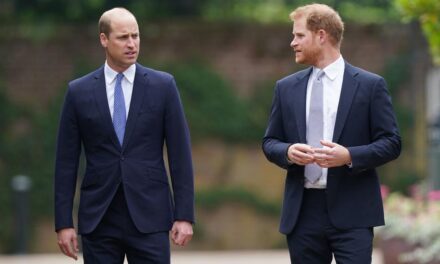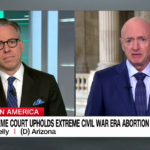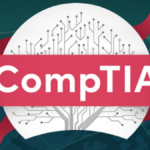
Opinion: Trump’s lies will lead us to the truth

Norman Eisen served as former President Barack Obama’s ethics czar and ambassador to the Czech Republic, and was special impeachment counsel to the House Judiciary Committee in 2019-2020. He is a senior fellow at Brookings. The opinions expressed here are his own. View more opinion at CNN.
(CNN)Because the assault on the 2020 election by former President Donald Trump and his enablers was so sweeping, the US House Select Committee investigating the deadly January 6 Capitol riot must pursue evidence equally broadly. We learned in recent days that the committee intends to do so, including obtaining a staggering load of information about Trump and others’ misconduct from several federal agencies, and digging into misinformation and efforts to overturn the election on 15 social media platforms, such as Facebook and Twitter.

Trump responded with a threat to fight the committee by invoking executive privilege, but as one who fought him over that issue in his first impeachment in 2020, I’m optimistic that the committee will get the information it needs.
The committee’s far-reaching demands for information to the executive branch and to non-governmental entities alike represent a classic investigative technique. Whether it’s a criminal, civil, or congressional matter, you must get all the records, study the patterns, and see what emerges.
The very first thing we did when we kicked off the investigation in the initial impeachment of Trump was issue more than 80 demands for information to entities and individuals — and the facts of Trump’s assault on the 2020 election and its certification are even more far-flung. For instance, Trump’s alleged obstruction of the Mueller investigation principally centered on a handful of aides at the White House and Department of Justice, whereas his alleged election wrongdoing encompassed multiple federal agencies and even reached into the states.
The executive privilege stonewalling that Trump could order while in office won’t work anymore. The congressional requests have been made to agencies led by officials appointed by President Joe Biden. They and the career professionals who will process the asks can be expected to comply.
The Biden administration has already staked out the general position that executive privilege does not apply.
The administration has waived executive privilege and allowed former Trump administration officials to provide testimony to Congress about the ex-president’s attacks on the 2020 election and its certification. The US Department of Justice correctly reasoned that the “extraordinary events in this matter constitute exceptional circumstances … [and] the congressional need for information outweighs the Executive Branch’s interest in maintaining confidentiality.”
Oral testimony is typically the most sensitive when it comes to privilege, more so than documents. That’s not to say that the current administration will completely waive the privilege for every one of the documents in the sweeping requests, but it’s a clue that Biden will turn over a lot.
The usual caution of administrations of both parties when it comes to executive privilege is less likely to prevail here. The events were so extraordinary and exceptional that there is less than usual risk of a precedent being created that can come back and be used against this or future administrations. Biden clearly is not likely to falsify an unquestioned election outcome or incite insurrection against his own government.

There could of course still be litigation by Trump to challenge the committee’s authority to seek information. It is true that his lawyers did not attempt to stop his former officials’ testimony, although the lawyers did claim that the former president was not waiving executive privilege. But just because Trump has not gone to court yet does not mean he will not do so. Trump has not exactly been shy about going to court, and his remarks over executive privilege when news of the latest document requests broke certainly open the door.
If he does sue, he will be sailing into headwinds. The courts ultimately vindicated Congress’s requests for information in two of the landmark cases connected to his first impeachment. They largely spurned Trump’s objections in his case against his accounting firm Mazars that he lost in the Supreme Court and in the case involving former White House counsel Don McGahn, which Trump lost in the DC Circuit. Now those precedents secured as part of impeachment are there to speed things along.
The prior impeachments have made other contributions to accelerating matters here. The second one earlier this year established an advanced factual scaffolding on which the committee is building by documenting in detail the events of January 6 and the long pattern of incitement by Trump that preceded it. That impeachment also moved on an extremely accelerated timetable that the committee is emulating here and would be well advised to maintain in court should they end up there — asking that lower court proceedings and appeals be handled on an emergency basis.
If Trump tests the committee in court, he will find that the law of executive privilege is not in his favor. The general rule is that the privilege belongs to the nation, not to any former incumbent — and the Biden administration has already demonstrated its inclination to waive.
It’s true that the courts have counseled that a former president be consulted, and that no case has squarely decided what happens if the current president disagrees with the former president. So, Trump could go to court and seek an injunction, arguing that he’s the owner of the privilege. But the tenor of the law makes it likely that he would lose — which may be why Trump did not attempt to stop those former officials from testifying in the first place. As the leading case in this area, Nixon v. Administrator of General Services, noted, “the privilege is not for the benefit of the President as an individual, but for the benefit of the Republic.” The person who makes that decision should logically be the one who currently represents us all: the current president.
Together with the demands we learned about earlier this week for phone and other records from telecom and social media companies, all of that makes it likely that the truth will be uncovered. Private companies are not going to fool around either.
A common investigative adage is “follow the money.” Here, Congress should follow Trump’s lies, especially the big lie that the election was stolen. The 1/6 committee is off to a good start doing just that, and there is ultimately little that Trump will be able to do to stop it.
Source: http://rss.cnn.com/~r/rss/cnn_topstories/~3/IudKmBBwYFs/index.html


















